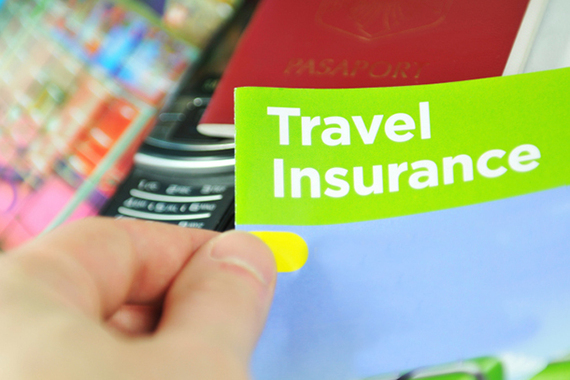For some trips, travel insurance is a virtual necessity; for others, it's worthless. The question boils down to a matter of risk. A basic purpose of any insurance is to mitigate financial risk.
So when you have a travel risk, travel insurance can help. Before you buy, assess your risks. Here are some of the most common ones:
Risk 1: Loss of deposits or prepayments. You often have to pay in full or provide a stiff deposit months in advance for a cruise, a tour, or a vacation rental. And if you have to cancel, you may lose a big chunk of those payments in cancellation penalties and nonrefundables. Trip cancellation insurance (TCI) reimburses you for non-recoverable deposits and penalties if you have to cancel before you start.
Risk 2: Extra expenses of returning home before your trip ends. If you have to abort a trip because something happens to you, your traveling companion, or a family member at home, getting home quickly may be expensive. Trip interruption insurance (TII) reimburses the non-recoverable extra costs of returning home early or of continuing as a single traveler if your companion has to return early.
Risk 3: Medical expenses. If you get sick or suffer an accident when you're away from home, you may face some stiff immediate medical bills. The main risk occurs when you're outside the U.S. Your own medical plan may cover you anywhere in the world; but some don't. Medicare doesn't cover you outside the U.S., but many Medicare supplements do. In any event, you typically have to shell out big payments on the spot and argue about reimbursement when you return home. Primary travel medical insurance (TMI) pays up front.
Risk 4: Emergency transport home. On your trip, if you're so sick you can't fly home, or if you fall and break your butt in some remote area, getting you to a hospital in a helicopter or back home on a private jet could cost a fortune. Medical evacuation (ME) insurance pays for any such requirement.
What to buy: You can easily determine the risk of lost prepayments or cancellation penalties. Consider TCI any time you have more advance payments at risk—the net of what you can recover in refunds—than you can comfortably absorb if you have to cancel a trip. The corollary is obvious: Don't pay to "insure" recoverable payments. TCI is "named peril" insurance that pays for only the contingencies specified in the policy— typically related to sickness and accident, and excluding work-related reasons. That's why we recommend “cancel for any reason” insurance: It is more expensive but you get to decide whether to cancel, not some insurance company bean counter. TCI policies generally exclude payment for pre-existing medical conditions, but most insurers waive that exclusion if you buy the insurance as soon as you start paying for your trip.
TM and ME are available separately by the trip or in six-month or yearly policies for frequent travelers. We recommend primary TM, so you don't have to max out your checking account or credit card on the spot. Prices for bundled policies and separate TM and ME policies depend on destination, duration of trip, and age. They range from 5 percent to 15 percent of your total trip cost—sometimes even more for very senior travelers.
What to avoid: Don't rely on a tour operator's or cruise line's cancellation waiver. It isn't true insurance; instead, the cruise line or operator agrees to waive its own cancellation penalty. Waivers cover fewer risks, and many limit reimbursement to a credit toward a future booking rather than a cash refund. Similarly, don't blindly accept a travel supplier's “opt in” insurance, which may be more expensive than an independent policy or offer insufficient coverage.
How to buy: We recommend buying through one of the several independent online agencies that specialize in travel insurance that provides comprehensive search and comparison systems. Among them:
- InsureMyTrip
- QuoteWright
- SquareMouth
- TravelInsurance.com
- Trip Insurance Store
-- By Ed Perkins
Read the original story: Is Travel Insurance a Waste of Money? by Ed Perkins, who is a regular contributor to SmarterTravel.

